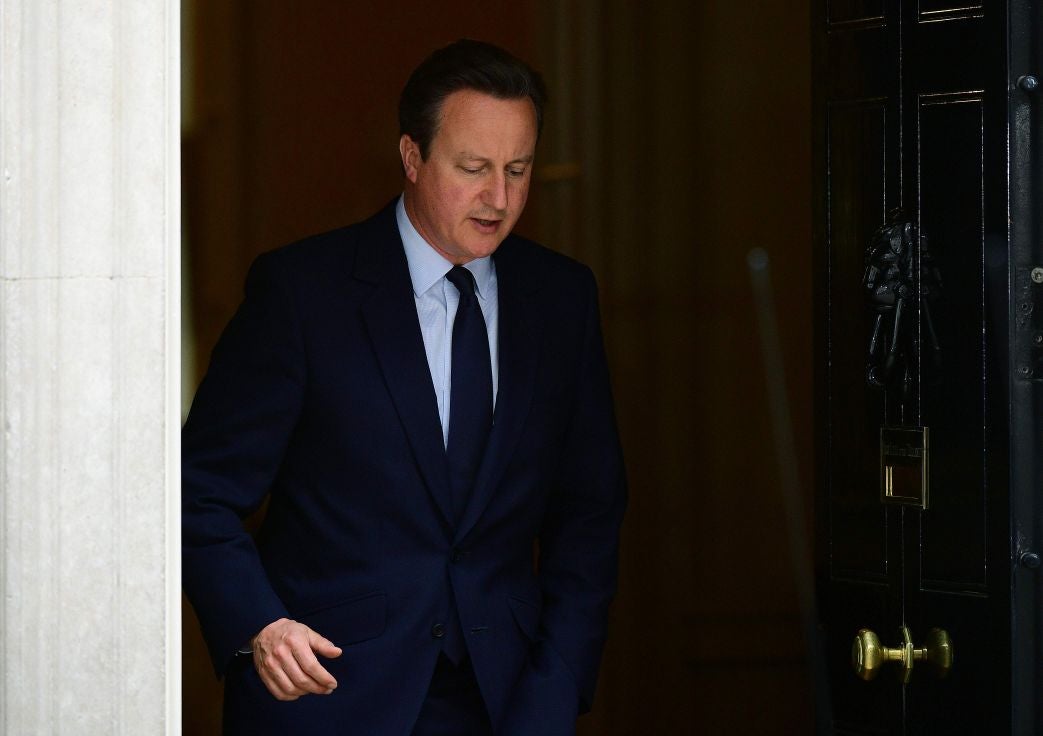David Cameron and Jeremy Corbyn have both just committed the same career-ending mistake
It's now clear that Cameron put politics above people – and in doing so, destroyed his legacy forever. Jeremy Corbyn, funnily enough, did the same thing with his rigid and impractical adherence to ideology

A true public servant. That is a political epitaph most leaders would surely like. It’s been said about David Cameron by Conservative allies in recent days. But if this EU referendum has revealed anything, it is a sorry shortage of senior politicians motivated, first and foremost, by that ideal: public service.
Looking at it one way, there could be no greater example of public service than to entrust the people with the biggest political decision of a generation, and then faithfully to carry out their wishes. From another point of view – and it is hard to argue without sounding undemocratic – it could be said that calling this referendum was a disservice to the public of Olympian proportions.
If David Cameron had chosen to put our EU membership to public vote because he genuinely believed, in his heart of hearts, that it was what was best for the people, his case might be easier to argue. But he didn’t.
In the words of his biographers Anthony Seldon and Peter Snowdon, the Prime Minister had three objectives when he called this vote: “to pacify Eurosceptic critics, neutralise UKIP, and take the EU off the front pages”.
Now we are seeing the consequences of the Leave vote: the value of the pound crumbling, political meltdown, the big companies that are the engine of our economy contemplating their flight from these shores. Significant job losses will likely follow.
This is not to mention the disturbing rise in anti-migrant feeling. Was it an act of public service to expose the public to this level of risk for the sake of an internal party feud, and a medium-sized electoral threat from UKIP?
Even if one thinks that, on balance, it was, then wouldn’t a true public servant stay on for a year or two to carry out the wishes of the public to whom he has so flippantly delegated responsibility, rather than departing the scene, adding political crisis to our economic one?
Cameron was a calm, steady, sensible Prime Minister who almost deserved the mantle of “true public servant”. But just as Blair’s legacy was eclipsed by one issue (Iraq), so is Cameron now condemned to be remembered as a Prime Minister who, when it really counted, put politics above public service.
A true public servant would have risked electoral defeat, endured the slings and arrows of his critics, if he knew, as Cameron did, how badly punished the public would be by a Leave vote.
Labour, meanwhile, has a leader who believes deeply in the principle of public service and has lived most of his political life by it.
But it is hard to deny now that Jeremy Corbyn, in failing to see the writing on the wall, in lacking the self-awareness to know that he cannot command the confidence of a large enough section of the British public to ever deliver a Labour government, is putting ideology and even himself, above public service.
MP Jess Phillips’ letter to the Labour leader on Monday said it well: “The Labour Party is not about you, it’s about us, most of all it’s about them, the brilliant people in the UK, even the ones who don’t agree with us. We need action, we really needed it last week [and] the week before.”
Faced with an historic opportunity to achieve his party’s goal of keeping Britain in the European Union, thus preventing the twin crises now unleashed on the country, Corbyn let it be very well known that he was only “seven and a half out of 10” in favour of staying in. It is hard to disagree with the conclusion of so many now ex-shadow Cabinet ministers, that he too, on this issue, was guilty of a failure in public service.
Finally Boris Johnson; a man whose commitment to the Brexit cause was so absolute that he wrote one article arguing for and another against, before plumping for “Leave” and spearheading a campaign that used half-truths, distortions and the occasional outright lie to win voters to its cause. In his case – the most sobering of all – it isn’t party politics or ideology that trumps public service, but ambition.
Amid this maelstrom, there is one news story which may, understandably, have escaped people’s attention. The Liberal Democrats have signed up thousands of new members since the Brexit vote, pledging to stand on a platform of restoring the UK’s EU membership at the next election. This is a party that, it could be argued, almost died for their commitment to public service. Their decision to enter into Coalition in 2010 was taken because, at a time of economic uncertainty, it was the best thing for the stability of the country. Electoral wipe-out followed five years later.
But out of the sorry mess of Brexit, they, and their commitment to putting the public above politics, might enjoy something of a resurgence. We can only hope others more powerful follow their example.

Join our commenting forum
Join thought-provoking conversations, follow other Independent readers and see their replies